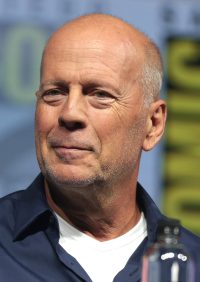Introduction
Fidel Castro, the iconic Cuban revolutionary and political leader, remains a figure of significant interest long after his passing. Known for his pivotal role in transforming Cuba into a communist state, Castro's leadership spanned nearly five decades. His net worth is a topic of intrigue, not only due to his political influence but also because of the complex economic landscape of Cuba during his reign.
Quick Facts
| FACT | DETAIL |
|---|---|
| Real Name | Fidel Alejandro Castro Ruz |
| Occupation(s) | Revolutionary, Politician |
| Gender | Male |
| Birth Date | August 13, 1926 |
| Age | Died at the age of 90 |
| Parents | Ángel Castro y Argiz, Lina Ruz González |
| Siblings | 6 siblings |
| Birthplace | Birán, Holguín Province, Cuba |
| Nationality | Cuban |
| Ethnicity | Hispanic |
| Education | University of Havana (Law Degree) |
| Marital Status | Divorced |
| Spouse | Mirta Diaz-Balart (divorced) |
| Children | 9 children |
| Dating | N/A |
| Net Worth | Estimated $900 Million (2024) |
| Source of Wealth | Political Leadership, State Assets |
Net Worth Overview
Fidel Castro's net worth in 2024 is estimated to be around $900 million. This figure, while speculative, encompasses the resources and assets he controlled during his leadership of Cuba. Unlike typical wealthy individuals, Castro's wealth was not derived from personal business ventures but rather from his control over the state and its economic resources.
Career and Income Streams
Political Leadership and Achievements
Fidel Castro rose to prominence as the leader of the Cuban Revolution, overthrowing the Batista regime in 1959. His main profession as the Prime Minister and later the President of Cuba defined his career. Castro's notable achievements include the establishment of a socialist state, significant improvements in healthcare and education, and a steadfast opposition to American influence in Latin America.
State-Controlled Wealth
Castro's wealth was primarily derived from his control over the Cuban state. As the head of state, he had access to national resources, including state-owned enterprises and industries. While his personal lifestyle was modest, the Cuban government's assets under his control contributed to his estimated net worth.
Net Worth Growth Over Time
Fidel Castro's net worth is closely tied to the economic state of Cuba. Over the years, Cuba faced economic challenges, including trade embargoes and economic isolation. Despite these hurdles, Castro maintained control over significant state assets, including real estate and industries critical to Cuba's economy.
Lifestyle and Expenditures
Castro was known for his simple lifestyle, often dressing in military fatigues and living modestly. However, as the leader of Cuba, he had access to luxurious properties, vehicles, and other state-owned assets. His influence extended to philanthropic efforts, primarily focused on social welfare programs within Cuba.
Peer Comparison
While Castro's net worth is substantial, it is essential to compare it with other political leaders and influential figures of his time. Unlike typical billionaires, Castro's wealth was not personal but rather tied to his leadership role. Compared to peers like Hugo Chavez and Kim Jong-il, Castro's financial standing reflects his unique position as a revolutionary leader.
Future Outlook
As of 2024, Fidel Castro's legacy continues to shape Cuba's political and economic landscape. While his direct influence has waned, the structures he established remain. The future of his net worth, primarily symbolic, depends on Cuba's ongoing economic reforms and its relationship with the global community.
FAQs
What was Fidel Castro's primary source of wealth?
Castro's wealth primarily came from his control over the Cuban state and its assets.
How did Castro's lifestyle reflect his wealth?
Despite his wealth, Castro maintained a modest lifestyle, emphasizing his revolutionary ideals.
Did Fidel Castro have any business ventures?
No, Castro's wealth was tied to state assets rather than personal business ventures.
How did international relations affect Castro's net worth?
Trade embargoes and economic isolation impacted Cuba's economy, indirectly affecting Castro's control over state wealth.
What was Castro's role in Cuban economic reforms?
Castro initiated several reforms, focusing on healthcare and education, but maintained a socialist economic model.
How does Castro's net worth compare to other leaders?
Unlike typical wealthy individuals, Castro's net worth reflects his control over state assets rather than personal wealth accumulation.
What were some of Castro's significant achievements?
Castro is renowned for leading the Cuban Revolution and establishing a socialist state.
How did Castro's leadership influence Cuba's economy?
Castro's policies and leadership significantly shaped Cuba's economy, focusing on state control and social welfare.
Conclusion
Fidel Castro's net worth in 2024 remains a testament to his enduring influence over Cuba's political and economic landscape. While his wealth is not personal in the traditional sense, his control over state assets during his leadership marks him as one of the most influential figures in modern history. His legacy continues to impact Cuba and the broader global community.













